Fleurs du Mal Magazine


Or see the index
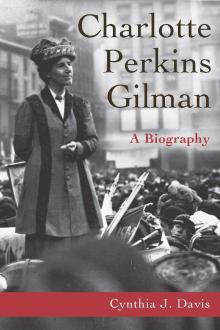
She who is to come
A woman–in so far as she beholdeth
Her one Beloved’s face;
A mother–with a great heart that enfoldeth
The children of the Race;
A body, free and strong, with that high beauty
That comes of perfect use, is built thereof;
A mind where Reason ruleth over Duty,
And Justice reigns with Love;
A self-poised, royal soul, brave, wise and tender,
No longer blind and dumb;
A Human Being, of an unknown splendor,
Is she who is to come!
Charlotte Perkins Gilman
(1860-1935)
She who is to come
Suffrage Songs and Verses
• fleursdumal.nl magazine
More in: # Classic Poetry Archive, Archive G-H, Archive G-H, Feminism
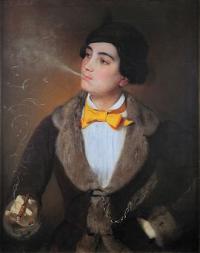
Dithyrambe
Glücklich, wem der Gott der Reben
Seine süßen Gaben beut,
Hüllend um das ganze Leben
Selige Vergessenheit!
Alle finstern Geister weichen,
Aller Fesseln sind wir los,
Herrscher in des Traumes Reichen,
Fühlt der Geist sich frei und groß.
Fort, mit deinen bleichen Zügen,
Träumende Erinnerung!
Deinen Zauber zu betrügen,
Fühl’ ich mächtig mich und jung!
Heiliger Entzückung Gluten
Fach’ ich in der Seele an;
Möchte frei das All’ umfluten,
Wie der alte Ocean!
Stürmt empor, ihr Jugendgeister!
Tanzt um mich in frohen Reih’n!
Immer frischer, immer dreister,
Stürzt ins Leben euch hinein!
Fluch den fremden, starren Mächten,
Die der Menschen Sinn betört;
Die uns martern, die uns knechten,
Die mein ganzes Sein zerstört!
Mächt’ger Gott der süßen Reben,
Spende mir Vergessenheit!
Schenke mir ein neues Leben,
Voll Genuß und Seligkeit!
Schlagt die Gläser all’ in Scherben:
So vergeh’ die alte Welt!
So mag sterben und verderben,
Was das Herz in Fesseln hält!
Louise Aston
(1814-1871)
Die wilde Rose
• fleursdumal.nl magazine
More in: # Classic Poetry Archive, Archive A-B, Archive A-B, Feminism
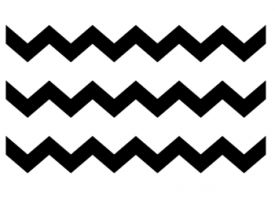
Verwunschene
In den Armen der Mühle hängen
die bleichen Verwunschenen
Drehen langsam den Stein des Brotes,
Unendlich geduldig.
Rings im Lande jagen die Prasser,
Aber die bleichen Verwunschenen
Mahlen unendlich geduldig das Korn.
Fängt ein Sturm ihre langen Ärmel
Sinken sie stumm in die heilige Erde.
Schicken von neuem bleiche Gesellen
Den Armen der Mühle
Geduldig, unendlich,
Verwunschen.
Bess Brenck-Kalischer
(Betty Levy, 1878-1933)
Verwunschene
• fleursdumal.nl magazine
More in: # Classic Poetry Archive, Archive A-B, Archive A-B

Weerwil
Macht kan harde dingen maar is zo zacht
als spek wanneer het er op aankomt. Ogen
in de rug moeten open blijven want achter
de hoek dralen ongeduldige messendragers.
Grof als de krachtige streken van Permeke
zijn hun bedoelingen. Ze zwijgen instemmend,
zwaar als leugens die nooit ontmaskerd werden.
Bert Bevers
Weerwil
(Uit: Andere taal, Litera Este, Borgerhout, 2010)
Bert Bevers is dichter en schrijver.
Hij woont en werkt in Antwerpen (Be).
• fleursdumal.nl magazine
More in: Archive A-B, Archive A-B, Bevers, Bert

Het Metropolitan Museum | Tilburg, de raamtentoonstellingen aan de Stedekestraat, opent dit nieuwe jaar met een markante tentoonstelling van Moniek Smeets, een bevlogen kartontovenaar die gedreven haar eigen foto’s mishandelt.
Relieken uit vervlogen tijden, van Treebeek tot Tilburg, verschijnen als sprookjesachtige werelden in bewegend papier, karton en elastiekjes. Een aanrader voor iedere veerkrachtige Tilburger.
“Tien vensters vol analoge deep fake en andere aardigheden door beeldend kunstenaar, animator en theatermaker Moniek Smeets. Een nieuwe werkelijkheid vol bewogen alternatieve feiten en spiegelbedrog … zoals de ‘Portrettenmachine’, de ‘Stemmingswisselaar’ en de ‘Wraaktassen’. Is alles wel wat het lijkt?
Kortom: een individueel groepsportret over het ondraaglijke leed van foto’s die ooit weggegooid gaan worden. Wie denkt Moniek Smeets wel wie ze is?
Een ‘Grote Smoelenshow’ verrijkt met o.a enkele rekwisieten uit theatervoorstellingen van Wiersma & Smeets.”
De tentoonstelling ‘Portrettenchirurgie’ van Moniek Smeets is van vrijdag 14 januari t/m zondag 13 maart 2022 te zien in het ‘Metropolitan Museum | Tilburg’, raamtentoonstellingen aan de Stedekestraat 15 te Tilburg, dagelijks dag en nacht geopend en de toegang is vrij.

‘PORTRETTENCHIRURGIE’
Moniek Smeets
14 januari t/m 13 maart 2022,
dagelijks, dag en nacht, toegang vrij
‘Metropolitan Museum | Tilburg’
Stedekestraat 15, 5041DM Tilburg
telefoon: 013 5358041 / 06 20325030
email: post@metropolitanmuseum.nl
website: www.metropolitanmuseum.nl
• fleursdumal.nl magazine
More in: Archive S-T, Art & Literature News, AUDIO, CINEMA, RADIO & TV, Exhibition Archive, Metropolitan Museum Tilburg
Met zijn nieuwe dichtbundel Komijnsplitsers zet Marieke Lucas Rijneveld opnieuw een grote stap in zijn dichterschap.
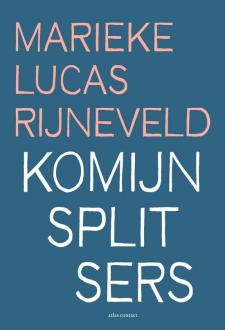 In acht afdelingen onderzoekt Rijneveld wat het betekent om te wonen: in een huis, in jezelf en in verhoudingen tot anderen. Wie of wat heb je nodig om een compleet mens te zijn?
In acht afdelingen onderzoekt Rijneveld wat het betekent om te wonen: in een huis, in jezelf en in verhoudingen tot anderen. Wie of wat heb je nodig om een compleet mens te zijn?
In een van de gedichten wordt verhaald over het verlangen één ruimte te zijn; iemand zoekt een brandtrap uit deze dag, trekt in plaats van een grijs vest een jongen aan.
De vrees om iemand te worden die de ander niet kan hebben – ‘om de verkeerde mens om je beenderen te vormen’ – vormt het grootste gevaar voor het maar al te herkenbare en hoopvolle verlangen naar groei.
In een taal die naar adem hapt en het zweet van het voorhoofd veegt, staat ‘Komijnsplitsers’ als een huis. In 2020 won Marieke Lucas Rijneveld de International Booker Prize voor ‘De avond is ongemak’.
Komijnsplitsers
Marieke Lucas Rijneveld
Uitgever: Atlas Contact
Taal: Nederlands
Bladzijden: 104 pp.
Bindwijze: Paperback
Genre: Poezie
ISBN 9789025471200
Verwacht 20-1-2022
€19,99
# new poetry
Komijnsplitsers
Marieke Lucas Rijneveld
• fleursdumal.nl magazine
More in: #Editors Choice Archiv, - Book News, - Bookstores, Archive Q-R, Archive Q-R, Art & Literature News, Marieke Lucas Rijneveld, Rijneveld, Marieke Lucas

Maoriland
Maoriland, my mother!
Holds the earth so fair another?
O, my land of the moa and Maori,
Garlanded grand with your forests of kauri,
Lone you stand, only beauty your dowry,
Maoriland, my mother!
Older poets sing their frozen
England in her mists enshrouded;
Newer lands my Muse has chosen,
‘Neath a Southern sky unclouded;
Set, a solitary gem,
In Pacific’s diadem.
Land of rugged white-clad ranges,
Standing proud, impassive, lonely;
Ice and snow, where never change is,
Save the mighty motion only
Where through valleys seared and deep
Slow the serpent glaciers creep.
Land of silent lakes that nestle
Deep as night, girt round with forest;
Water never cut by vessel,
In whose mirror evermore rest
Green-wrapt mountain-side and peak,
Reddened by the sunset’s streak.
Land of forests richly sweeping,
By the rata’s red fire spangled;
Where at noonday night is sleeping,
Where, beneath the creepers tangled,
Come the tui’s liquid calls
And the plash of waterfalls.
Land where fire from Earth’s deep centre
Fights for breath in anguish furied,
Till she from the weight that pent her
Flings her flames out fiercely lurid;
Where the geysers hiss and seethe,
And the rocks groan far beneath.
Land of tussocked plain extending
In the distant blue to mingle,
Where wide rivers sigh unending
Over weary wastes of shingle;
Cold as moonlight is their flow
From the glacier-ice and snow.
Land where torrents pause to dally
‘Neath the toi’s floating feather,
Where the flax-blades in the valley
Whisper stealthily together,
And within the cabbage-trees
Hides the dying evening breeze.
Land where all winds whisper one word,
“Death!” — though skies are fair above her.
Newer nations white press onward:
Her brown warriors’ fight is over —
One by one they yield their place,
Peace-slain chieftains of her race.
Land where faces find no furrow,
With the flush of life elated;
Where no grief is, save the sorrow
Of a pleasure that is sated;
Land of children lithe and slim,
Fresh of face and long of limb.
Land of fair enwreathëd cities,
Wide towns that the green bush merge in;
Land whose history unwrit is —
Memory hath no chaster virgin!
Land that is a starting place
For a newer, nobler race.
Maoriland, my mother!
Holds the Earth so fair another?
O, my land of the moa and Maori,
Garlanded grand with your rata and kauri,
Lone you stand, only beauty your dowry,
Maoriland, my mother!
Arthur Adams
(1872-1936)
Maoriland
• fleursdumal.nl magazine
More in: Adams, Arthur, Archive A-B, Archive A-B

Delight
I’ve been delighting in your face
since the Eureka mess of our embrace,
the cork of fizzing kissing taken place,
the sexual notation of blushing staves,
a lust-compass flashing up radar blips.
Sloppy corners, edges in melted clips
of our manic laughter, on risky ships,
in the city’s darkness and muddy trips,
naked tangles on private sandy strips,
isolated scrub lands and forest bits,
disused canal tunnel with freezing tits,
stopping the car in shadowy lay-bys,
alleyways, echoing blissed-out cries,
she delighted, ripping open my flies.
And through our lustiness a miracle came,
the pneumatic forces created the near-same,
through the acrobatic propagated struggle
in the hospital you pushed out of the bubble
when we saw you delight in your life force.
Now we are celebrating the main course
of us all together, as a loving source,
of the wonderful blended mix,
of our delight, our scented lives transfixed
we have built the home as well as the bricks.
Vincent Berquez
Delight
Vincent Berquez is a London–based artist and poet. He has published in Britain, Europe, America and New Zealand. His work is in many anthologies, collections and magazines worldwide (f.i. fleursdumal.nl).
# new book of poetry by Vincent Berquez:
The Sound of Blossom Falling
Author: Vincent Berquez
Paperback
Language: English
86 pages
Publisher: Cyberwit.net
2021
ISBN-10: 9390601096
ISBN-13: 978-9390601097
£10.89
• fleursdumal.nl magazine
More in: #Editors Choice Archiv, Archive A-B, Archive A-B, Art & Literature News, Berquez, Vincent, Vincent Berquez

Rimpels
We lijken alleen zo oud. Het is de lichtval maar.
Want, gedraaid, kijk: nu zijn we weer gladjong.
Als toen we de simpele hoop uitspraken later
samen te mogen rimpelen. Die speling in en van
rechtmatig verleden. We wachtten brave jaren
op tijdgenoten, maar die bleken er al lang te zijn.
Bert Bevers
Rimpels
(Ongepubliceerd)
Bert Bevers is dichter en schrijver.
Hij woont en werkt in Antwerpen (Be).
• fleursdumal.nl magazine
More in: Archive A-B, Archive A-B, Bevers, Bert
Venerated for his lyrics, Bob Dylan in fact is a songwriting musician with a unique mastery of merging his words with music and performance.
 Larry Starr cuts through pretention and myth to provide a refreshingly holistic appreciation of Dylan’s music. Ranging from celebrated classics to less familiar compositions, Starr invites readers to reinvigorate their listening experiences by sharing his own—sometimes approaching a song from a fresh perspective, sometimes reeling in surprise at discoveries found in well-known favorites. Starr breaks down often-overlooked aspects of the works, from Dylan’s many vocal styles to his evocative harmonica playing to his choices as a composer. The result is a guide that allows listeners to follow their own passionate love of music into hearing these songs—and personal favorites—in new ways.
Larry Starr cuts through pretention and myth to provide a refreshingly holistic appreciation of Dylan’s music. Ranging from celebrated classics to less familiar compositions, Starr invites readers to reinvigorate their listening experiences by sharing his own—sometimes approaching a song from a fresh perspective, sometimes reeling in surprise at discoveries found in well-known favorites. Starr breaks down often-overlooked aspects of the works, from Dylan’s many vocal styles to his evocative harmonica playing to his choices as a composer. The result is a guide that allows listeners to follow their own passionate love of music into hearing these songs—and personal favorites—in new ways.
Reader-friendly and revealing, Listening to Bob Dylan encourages hardcore fans and Dylan-curious seekers alike to rediscover the music legend.
Larry Starr is emeritus professor of music history at the University of Washington. He is the author of George Gershwin and coauthor of American Popular Music: From Minstrelsy to MP3, sixth edition.
# non fiction: music
Listening to Bob Dylan
Author: Larry Starr
Experiencing and re-experiencing Dylan’s music
Pages: 160 pages
Dimensions: 6 x 9 in
Paperback – $19.95
978-0-252-08602-1
Publication Date: 10/12/2021
Series: Music in American Life
University of Illinois Press
2021
• fleursdumal.nl magazine
More in: # Music Archive, Archive C-D, Archive C-D, Archive S-T, AUDIO, CINEMA, RADIO & TV, Bob Dylan, Dylan, Bob, NONFICTION: ESSAYS & STORIES

Dancing into
the cream of the night
You said take me dancing
in the cream of the night
like we did that time
when the music was jasper Spanish.
The seated flamenco women clapped
out the velocity of chattering rhythms
pushing the black and scarlet music
to the edge of our half-conscious world,
exciting the bloody pump with the drum
of temptation that agitated our lustiness.
The partnership of limbs tangled
loquacious, heady, demanding.
We took to the slippery dance floor
where I held the spine of your wet skin
in the stretch of my flexed palm –
you said your heart needed to dance with me
until the silver slit cracked into the shock
of the smoky grey marbled morning.
In charged anarchy, we succumbed
to fog drunkenly and lost ourselves till then.
Vincent Berquez
Dancing into the cream of the night
# Vincent Berquez is a London–based artist and poet. He has published in Britain, Europe, America and New Zealand. His work is in many anthologies, collections and magazines worldwide (f.i. fleursdumal.nl).
# new book of poetry by Vincent Berquez:
The Sound of Blossom Falling
Author: Vincent Berquez
Paperback
Language: English
86 pages
Publisher: Cyberwit.net
2021
ISBN-10: 9390601096
ISBN-13: 978-9390601097
£10.89
• fleursdumal.nl magazine
More in: #Editors Choice Archiv, Archive A-B, Art & Literature News, Berquez, Vincent, Vincent Berquez
In about: blank, Tracy Fuad builds a poetics of contemporary dissociation.
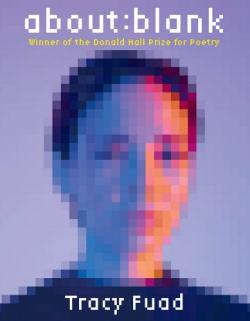 Funny, plaintive, and cutting, this formally inventive debut probes alienation in place and in language through the author’s consideration of her own relationship to Iraqi Kurdistan. about: blank–the title of which is the universal URL for a blank web page–complicates questions of longing and belonging. Interrogating the language of internet chatrooms, Yelp reviews, and the Kurdish dictionary, the poems here leap surprisingly between subjects to find new meaning.
Funny, plaintive, and cutting, this formally inventive debut probes alienation in place and in language through the author’s consideration of her own relationship to Iraqi Kurdistan. about: blank–the title of which is the universal URL for a blank web page–complicates questions of longing and belonging. Interrogating the language of internet chatrooms, Yelp reviews, and the Kurdish dictionary, the poems here leap surprisingly between subjects to find new meaning.
Written before and during the years the author spent living in Iraqi Kurdistan, the collection documents the alienation of being inside, outside, and between language(s) and the always-already terror of grammar. At once haunted and humorous, about: blank inhabits and exhibits the disorientation and fragmentation that is endemic to the internet era, and mourns the loss of a more embodied existence.
Tracy Fuad is the author of PITH, winner of the Gloria Anzaldúa Prize, and DAD DAD DAD DAD DAD DAD DAD. Her work has appeared in Poetry, the Best New Poets Anthology, the New Republic, and elsewhere. She is a graduate of the Rutgers-Newark MFA program and a 2021-2022 Writing Fellow at the Providence Fine Arts Work Center.
Title: about: blank
by Tracy Fuad
Language: English
Publish Date: October 19, 2021
Publisher: University of Pittsburgh Press
Pages 96
Type: Paperback
EAN/UPC 9780822966685
Price $18.00
• fleursdumal.nl magazine
More in: #Editors Choice Archiv, - Book News, Archive E-F, Archive E-F, LITERARY MAGAZINES
Thank you for reading Fleurs du Mal - magazine for art & literature